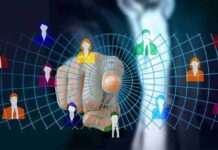Top HR Tech Trends Improving Employee Experience in 2021
Given the unprecedented catastrophe that disrupted every aspect of human life, it would be imprudent to forecast the trends that would be dominating the future of HR tech. However, as we say goodbye to another year and hello to a brand new one, there’s one thing that is going to remain unchanged even in 2021 and that’s the use of HR tech in workplaces. The HR tech world is full of promises with some exciting trends in the pipeline for the year 2021.
Today, businesses have started acknowledging the value people data can bring to them. Without any doubt, the Covid-19 has completely reset the work trends and business leaders are expeditiously turning to digital tools to manage their workforce efficiently and effectively. With that being said, the HR world is evolving continuously and new functions are added to HR software to reflect those changes. Thus, it can be speculated that 2021 could be vastly different from previous years. And here are some of the major HR trends HR technology analysts or pundits are anticipating in 2021.
Remote Working is Here to Stay
According to research by Flexjobs, remote work grew by 44% in the last five years and 91% over the last 10 years. This indicates that remote working is largely embraced by almost every organization- from medium-sized enterprises to large multinational organizations. The biggest indicators have been recent developments like TCS announcing permanent work-from-home for most of their employees.
While remote work offers a plethora of benefits, certain measures need to be taken by companies to boost team engagement and collaboration and facilitate an easy transition. Traditionally it seems challenging to carry out all these HR functions effectively. However, with the innovations in cloud-based human capital management systems, remote location is no longer a bottleneck in managing employees. HR vendors must focus on reading the pulse of the market. Their pain points and tech solutions which can eliminate those points should be the area where developing the right mix of HR solutions, digital tools, unified employee engagement, and performance management tools to overcome core HR challenges.
Artificial Intelligence as an Integral Part of Modern HR
Over the past few years, Artificial Intelligence has become an indispensable part of modern HR technology, which is dramatically changing the way organizations function. Organizations can use AI algorithms to automate cumbersome and redundant HR operations with the highest accuracy and speed. It will eventually offer them enough time to carry out more strategic and high-impact tasks. Organizations have also started deploying AI-powered HR tools to automate interview scheduling, provide continuous feedback to the candidates, and resolve their queries or concerns in real-time. This enables HR managers to spend more time converting candidates to hires. Some companies are using AI platforms to analyze employee data and generate actionable insights. Artificial intelligence is slowly creeping into the HR work sphere- it entails HR leaders to upgrade their skill sets so that they can leverage the prodigious benefits this technology has to offer.
Data-driven HR is More Important than Ever Before
Gone are the days when HR professionals used to make critical decisions based on relationships or personal experiences. Today, HR is becoming more data-driven and there’s a lot of employee data, which when utilized wisely can help HR leaders to optimize their workforce and build strategies that improve key people metrics. The new wave of digital transformation demands HR leaders to integrate data into processes so they can drive better workforce decisions, productivity, and successful business outcomes. Easy access to data can aid HR leaders in making decisions about the right time to hire by compiling all of the costs that go into recruiting and retaining each candidate. The use of data analytics to carry out major HR processes can help you assure senior leadership that your recommendations are based on data, not intuition.
Tech-driven HR Ecosystems Will Boost Seamless Employee Experience
Over the past few years, organizations have started realizing the importance of creating a positive employee experience. Many HR vendors have taken initiatives to develop a tech-based self-service HR ecosystem, providing holistic coverage of all the touchpoints in an employee lifecycle. There are a plethora of technology solutions available in the HR space that cover the entire employee lifecycle, ranging from onboarding and career management to learning and development and even right through to offboarding. It has become imperative for organizations to integrate these tools or technologies with their HRMS platforms to provide a seamless experience to employees. By collecting and analyzing data around issues like employee sentiment and well-being, it is possible to evaluate the impact of several business decisions on the employees. This means that an amalgamation of business rules, data science, and machine learning software can take the employee experience to another level.
The Gig Economy is Experiencing a Sharp Spike
Unlike the previous generations, the millennial workforce is more interested in working on their own terms and conditions. This has forced HR leaders to adapt to the evolving needs of the new generation of employees. Over the past few years, we have witnessed a sharp spike in the gig economy. The rise in the gig economy makes it imperative for HR leaders to bring these diverse workers on one platform and manage their recruitment, performance, compensation, etc. more effectively. This is where customized HR tools come into the picture. From tracking leaves and attendance of the workforce to managing and retaining top talents, HR professionals can carry out major HR processes without being physically present.
The year 2020 has been a fantastic year for HR and HR tech startups. Businesses have already started embracing the new changes and now they are looking for solutions that would add value to their organization. Whether you resume working from offices or keep the work from home trend alive, digital HR tools will play a crucial role in workforce management and optimization. Things have changed drastically in 2020 and will continue to change in the coming years, therefore, it is prudent to stay informed of the latest so that you’re well-equipped to lead your organization in the right direction.









